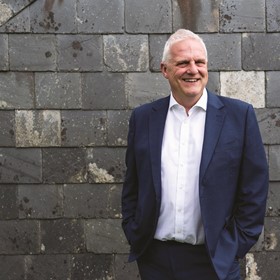Posted on:
14th December, 2022
"I believe the creation of LEPs has been a force for good when it comes to devolved decision making." says Cornwall LEP Chair Mark Duddridge
With the public consultation on the proposed Cornwall Devolution Deal now live and running until 17 February 2023, Cornwall and Isles of Scilly LEP Chair, Mark Duddridge, below sets out the value of local business in driving investment and the need to keep that alive in any devolved structure.

"The devolution deal just signed between Cornwall Council and the Government has fired the starting gun on Cornwall having a directly elected mayor by 2024.
The deal is unequivocal on this point: unless Cornwall Council resolves to move to a directly elected mayor (and cabinet executive governance model), the deal will fall.
The inaugural mayoral election is planned for 2 May, 2024, with an initial term of five years, and four years thereafter. Whether we have an election for mayor is still subject to full Cornwall Council approval and Government sign-off, following a local public consultation which is currently underway.
It’s fair to say that the deal as it stands, at least in money terms, is not a cash bonanza. It equates to an extra £12 million a year for the next 30 years. That doesn’t sound a lot against Cornwall Council’s £1.3 billion gross annual budget, but to criticise the deal for that would be to miss the point.
That’s because we have to start somewhere. I think most people would agree that we remain one of the most centralised nations in Europe. And if we are to believe what political parties of all colours tell us – that they want to devolve more power away from Westminster – then we have to be in it to win it.
If you look at what Manchester has achieved since their first devolution deal in 2014, they have secured five further deals in an ever-deepening of devolved powers. So, I agree with the view that Cornwall’s deal should be seen as a stepping stone to further powers and more investment.
The Government accepts this, recognising that Cornwall Council has “ambition to deepen devolution over time” and undertaking to continue dialogue with a view to achieving those ambitions.
What remains to be seen is whether that happens. It’s ten years since Lord Heseltine published his report into wealth creation called ‘No Stone Unturned’, in which he called on Government to “unleash the dynamic potential of our economies” by reversing a century of centralisation. Let’s hope is doesn’t take another century to get it right.
To be fair there has been progress. You’d expect me to say this, but I believe the creation of Local Enterprise Partnerships (LEPs), for example, has been a force for good when it comes to devolved decision-making.
LEPs have helped galvanise regional partners across the private and public sector to drive local growth. And without a strong business voice at the heart of local decision-making, there are a number of strategic investments in Cornwall that I believe might not have happened.
An example is the LEP’s investment in Cornwall’s space economy, from the £8.4 million in upgrading Goonhilly Earth Station for deep space communications in 2018, to our more recent £2 million support for the facilities at Spaceport Cornwall.
Goonhilly has recently been part of NASA’s landmark Artemis 1 mission to the moon, the latest step towards offering commercial lunar communications to customers around the world. And Spaceport is counting down to the first ever satellite launch from UK soil, also serving a global market.
The LEP has invested £3.78 million in a new STEM and Health Skills centre in Bodmin, to meet the skills needs of growth sectors like engineering, manufacturing, digital and health. Our Employment and Skills Board, which includes business representatives from a range of sectors, has played a key role in helping to shape this provision and future requirements across our economy. And we have been a powerful advocate for developing floating offshore wind and tech metal mining industries in our region, both essential to the low carbon transition.
The reason I highlight these projects is because the voice of business has been vital to joining the dots when it comes to investment decisions and identifying these longer-term, strategic opportunities.
Perhaps this is because the private sector is less constrained by the cycle of local and national elections and party-political machinations, and the short-termism this can engender. That’s not meant as a criticism, it’s just a fact of life. Remember that we’re on our fourth Chancellor this year.
We haven’t seen the full benefits of these strategic investments yet because they are mostly geared to supporting Cornwall’s future economy and growth sectors. But that horizon-scanning has been crucial and my worry is that this could be lost if we are not careful.
Equally important is the voice of business in helping government (local and national) to respond to the immediate economic shocks facing our economy, from covid and stagflation to the cost of living crisis, and that has been proved time and again through the strength of our local partnerships.
The LEP’s days are numbered, of course, because under the devolution deal it will be absorbed into the local authority, as has happened in other regions. We still don’t know exactly when that will be, but the Government has made it clear it wants to see a strong business voice in the new democratic institutions that emerge.
In fact, it’s written into the devolution deal, saying that Cornwall’s “strong, independent and diverse” business voice should be “meaningfully engaged” with the Council’s decision-making process, as part of a culture of “constructive challenge and scrutiny”.
I hope civic leaders embrace that desire to keep the private sector close. The devolution deal is a great opportunity to secure new powers and attract significant public and private investment, and the business community is committed to working hard with all partners to help make that happen."
This article originally appeared n Business Cornwall on 14 December.




































 Back
Back
 View cookie policy
View cookie policy